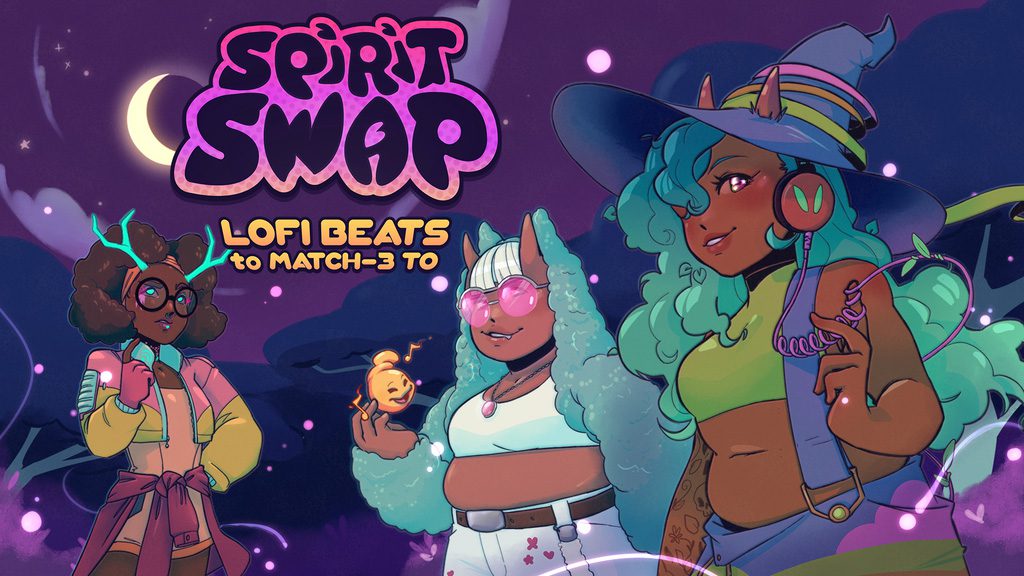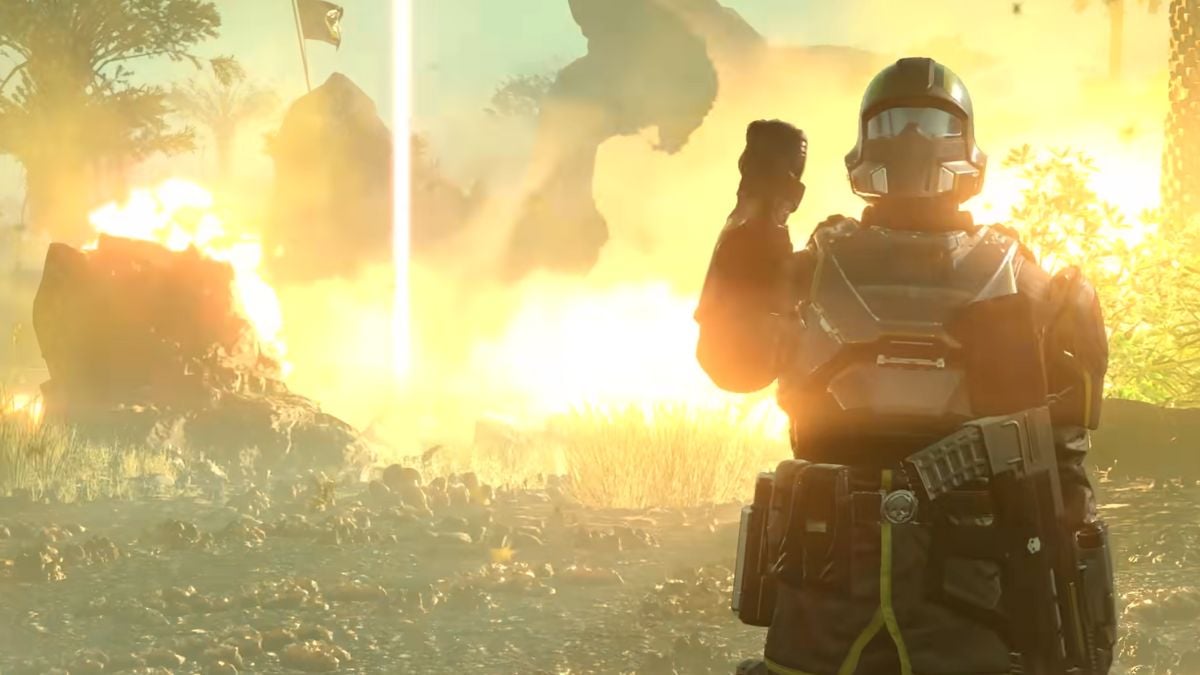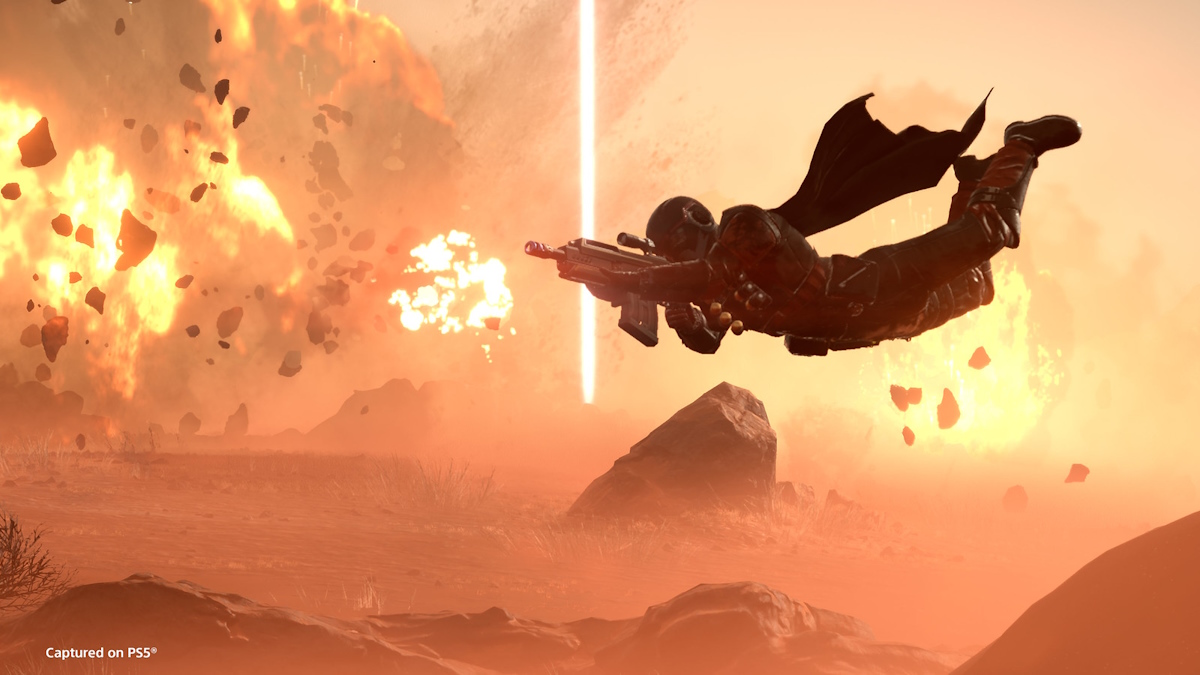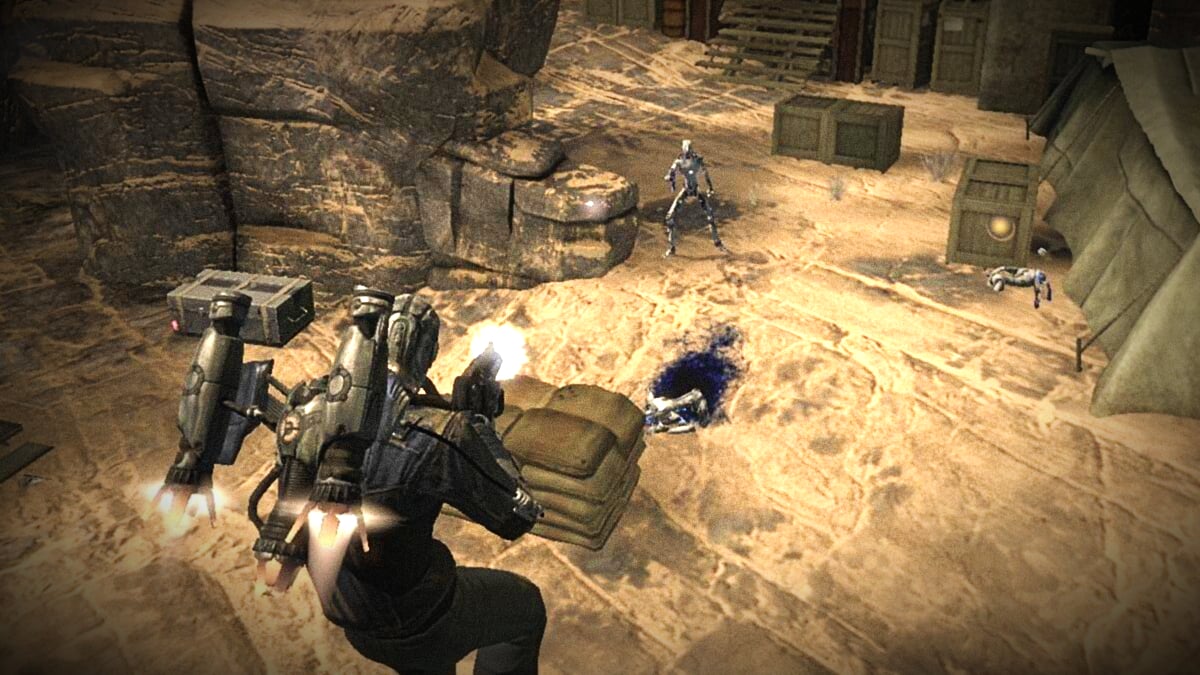Soft Not Weak’s debut game is flipping fantastic
I’ve been lucky enough to get to meet a lot of game developers from very different walks of life. From people at big names like Nintendo, Microsoft, Sony, Devolver, Riot, and Bethesda, to little indies likes Tom Happ and Joakim Sandberg, I respect them all, and hope they all get what they want out of this unpredictable, often terrifying industry.
That said, there are some games I feel more hopeful for than others; the games that I think might be “good” for people in the ways that matter. Not just an OK way to spend a few hours, or worse, a way to be preyed upon by predatory game design strategies. I mean games that actually make your life better. Those are the games I throw my heart towards all the way.
Spirit Swap (now on Kickstarter) may be one of those games.
Having worked for years as a counselor for people who suffer from anxiety, depression, and other aspects of trauma, I’ve seen a lot of different things affect a lot of different brains in a lot of different ways. One thing I can say for sure is, what you do with your brain makes a huge difference in what your brain does to you. I’ve also studied the research on how puzzle games like Tetris might help prevent PTSD, how good rhythm games can get your brain into a “flow state,” and how that state is essentially the opposite of the loop that many people with brain injury and PTSD are led to experience. I’m also into the theories about how creating something (art, dance, even a video game blog) is the best path out of feeling trapped and victimized. Art Therapy was founded on this theory.
But what about Game Therapy? That’s where Soft Not Weak’s Spirit Swap comes in.
The game isn’t done yet, so who knows how therapeutic it will actually be, but the demo — and everything else on its Kickstarter page — makes me extremely optimistic. It stars a cast of minorities that, for lack of a better term, appear happy as fuck. That alone is enough to make people who feel stepped on, the underdogs of the world, feel a little bit lighter. Marry those characters to the rhythm and puzzle genres at the same time and you have a triad of mindfulness, creativity, and joy that could only be good for you.
I recently got to talk to Soft Not Weak founder Alex A.K. about Spirit Swap and its potential therapeutic effects, and they had a lot to say.

First, I needed to know why Alex wanted to take a risk on making a Panel de Pon (AKA Puzzle League/Tetris Attack) clone with rhythm game elements in 2021. These days, puzzle games are often relegated to the gambling-esque “freemium hell” gameplay loop, while the rhythm genre has been struggling in the mainstream ever since Rock Band/Guitar Hero fell out of fashion. So why hitch your debut title to both those genres?
Alex told me “I’m a huge, huge Panel de Pon fan, bought the original cartridge when I was living in Japan and all, and when we started conceptualizing the game end of year 2019, there really wasn’t any way to play Panel de Pon on a current-gen platform.”
Undeterred by the warning signs, Alex couldn’t stay away from the game, stating, “There’s always been something very grounding to me in puzzle games. I’ve used Lumines, Tetris to help find my focus, or games like Picross S or Chill mode Crossniq+ to help me fall asleep, but the one I always went back to for that simple feeling of colorful joy was Panel de Pon.”

The passion for Panel de Pon was there, but it was Nintendo itself that gave Alex the final push needed to actually start making the game.
“In March 2020 Nintendo just kinda put it in the SNES emulator on Switch, and I was like ‘Oh now everyone can play the original easy peasy!'” they yelled, explaining that “It felt like the final sign I needed to make this game I’d been mulling over for a while now. A love letter to Panel de Pon that pushes the gameplay further with the new spell concept, that you can play with more friends, and a satisfying character-based narrative that unfolds as you get to know everyone better. [Clears throat] And also some romance but because why make hot characters if you can’t flirt with any of them? [laughs]”
So Alex had already been playing puzzle games for therapeutic reasons, to help with sleep and concentration, but they couldn’t help but want to add more feel-good elements to the equation, like friendship, romance, and some good old fashioned sex appeal. That’s a lot to pack into a genre that, traditionally, people play for a light “time-waster.”
Alex didn’t see it that way though, and their team worked to slowly gauge how much ambition they could inject into the project without traumatizing themselves in the process.

“The game did start with a much more narrow scope,” they admitted. “One pitfall I wanted to avoid when designing our studio’s debut game was the common indie ‘overscoping.’ Designing a game too ambitious and grand with a yet-to-be-tested team. I wanted to keep the game scalable so that we could ship it no matter what with our core team members only if it came to it. So we started from a simple concept in a genre I play a lot and love. A match-3 game.”
“It was important to make something we as a team would want to play and enjoy. From there on out it was a matter of scaling the game according to what we knew we could afford to ship without compromising our team’s health or our ethics. That’s how Spirit Swap was born. It may look like a risk, but it was definitely a calculated risk taken on a game we knew we could complete and ship on no budget, and on a real budget if that materialized, just at different scales depending on what happened with the money.”

The gif above shows what Spirit Swap looked like in 2020, before the art had scaled up in fidelity. As of this writing, its scale is still expanding. The campaign is well on its way to its next stretch goal as the team explores the potential to port to consoles.
Breathing a sigh of relief, Alex said “Looking at our Kickstarter now, it feels like our gamble has paid off and the audience I was convinced exists, the people who look like the team and enjoy seeing people who look like them have joyful experiences, does actually exist. It’s been interesting seeing the kind of people who are interested in our game, in that they’re not the typical ‘gamer’ that the industry at large favors or speaks to in terms of marketing. I’m so grateful we found each other, as it’s thanks to people like them and you that we can develop the game to its full scope now!”
That was a point I was excited to get into. Spirit Swap‘s world is based on some of the team’s real-life experiences growing up in the Middle East, fusing neon magic with natural tones for a playful, candy-sweet look. The characters are toned to match, comfortable in their own skins, running the spectrum of body types, skin tones, and gender identities. This level of inclusivity is like an oasis for many marginalized people who are thirsty for representation.

It’s a thirst Alex relates with personally. They told us “My team is overwhelmingly composed of Queer, Trans, People of Color of various sizes and backgrounds, and Spirit Swap is a medley sung with all of our intertwining voices. It combines a lot of the things we love and a lot of the people we love and that’s why it looks like it does!”
Alex was also quick to explain why there isn’t a ‘token’ straight white guys in the game, at least for now. “There are no cis white dudes in our character roster because there are no cis white dudes on the team right now, it’s really that simple.” It seems they don’t feel any pressure to add a straight white man to the roster just to hit some arbitrary ‘diversity quota,’ but are open to the idea of more characters if the roster — and team — expands in the future.
Alex also didn’t think that, just because the game was about marginalized people, that it needs a story about strife and struggle. Alex reasoned that “…it’s true we may not run the world or control its wealth, but that doesn’t mean we don’t deserve to be the focus of joyful media. Back in October, when we kicked pre-production fully into gear, I asked my team, which was way smaller then, if there was a character they really wanted to see in Spirit Swap. Some came back with simple concepts we fleshed out together, some gave me entire documents and moodboards, but they all put what felt like a reflection of themselves in the game.”

This part of development was one that Alex and the team reveled in.
“I had already designed a few based on some of my friends,” they said, “but since our final roster was a total of 14 characters, we had the space to do more, and the game is better for it.” Thinking on it, Alex boiled it down to a key mission statement. “I guess that’s the true reason this is all so important to me. We wanted to make a self-indulgent game that looks like us, and it just so happened that there were a lot more people out there who look like us that happened to vibe with it.”
To me, this gleeful self-indulgence sounds like the opposite of feeling afraid, of needing to be preoccupied with survival. For a lot of people with trauma, preoccupation with simply staying alive is at the core of the condition. I wanted to know if Alex agreed, and if they thought it might be possible that their game could help people to not just survive, but to live, to thrive.
They told me “I think if I went by my experience of gender, the opposite of trauma would definitely be euphoria. I don’t know if our silly little game is enough to give anyone that euphoric experience, that sense that everything is right and joyful in the world in that moment, that feeling of feeling right within yourself and loved by those around you… but I hope it does?”

In an effort to dig into their own thoughts, to see if they thought it was even possible for a game to help someone feel that way, Alex took a beat to think, then said: “I still remember how elated I felt the first time I saw Mad Max: Fury Road in theaters. I remember telling my brother afterwards ‘Is this what men feel like all the time when watching movies? Powerful? Happy?’ And it was over such a simple, silly thing, an action movie of all things! I want that. I want those little pops of serotonin for everyone who plays Spirit Swap, no matter how silly and low stakes it is. I want that affirmation of self in the most mundane or fantastical settings. I want the music to get stuck in your head and make you smile when you hum it. It’s a lot to ask of a game, but I guess we’ll see if it happens? Fingers crossed!”
To close, I asked Alex if they thought video games could change people’s lives.
They told me “I guess it’d be kinda silly, given everything we know about games now and the human brain, to think that they didn’t affect people in any way. I don’t know if games can change people’s lives per say, it seems like a big burden to place on the shoulders of play in general? But I do think my life would’ve been way harder without the comfort of the worlds I would escape to as a child.”




